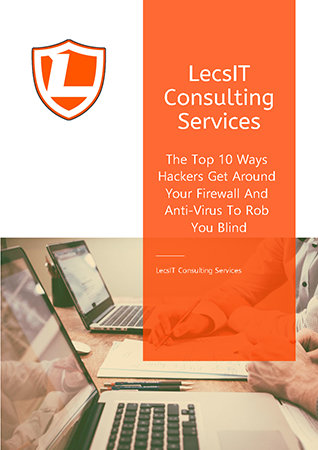 As you embark on your business planning for 2024, it's essential to address the various facets of your strategy. Amidst the year-end hustle, small business owners sometimes overlook the significance of cyber security planning when devising their new year strategy. Cyber security is not just an IT decision; it's a critical business decision. Your company's success relies on safeguarding your data, as well as that of your clients, from the threats posed by cybercriminals.
As you embark on your business planning for 2024, it's essential to address the various facets of your strategy. Amidst the year-end hustle, small business owners sometimes overlook the significance of cyber security planning when devising their new year strategy. Cyber security is not just an IT decision; it's a critical business decision. Your company's success relies on safeguarding your data, as well as that of your clients, from the threats posed by cybercriminals.
To formulate a robust plan for the upcoming year, it's crucial for every business owner to have a grasp of fundamental cyber security principles. Cyber issues have become so commonplace that it's easy to become desensitized to the ramifications of data breaches, potentially leaving you vulnerable to an attack.
Here are ten pivotal takeaways about cyber security that you should keep at the forefront of your business planning. Your security hinges on these principles:
1. Size Doesn't Matter:
No business is too small. Cybercriminals are inclined to target small businesses precisely because they often underestimate the threat. Regardless of the size of your company or the quantity of data and assets you possess, you are at risk.
Key Point – Secure your business by seeking guidance from a cyber security expert.
2. Employees Are a Potential Risk:
While your employees may not intend harm, human error ranks as the primary contributor to cybercrime. Inadvertent actions, such as clicking on malicious links or downloading harmful attachments, can lead to significant issues for your business.
Key Point – Allocate a portion of your budget for cyber security training for your staff.
3. Prompt Software Updates:
Regularly update your software when prompted, including web browsers. Notifications for updates often indicate the need to patch vulnerabilities or fix bugs. Neglecting updates leaves security holes that hackers can exploit.
Key Point – Implement automatic updates and manually update when necessary.
4. Data Backup Is Crucial:
Unforeseen disasters can strike, be it natural calamities like tornadoes or floods, or cybercriminals holding your network hostage. Maintaining data backups allows you to minimize downtime and mitigate further damage to your business.
Key Point – Establish an off-site backup and conduct regular testing to verify its effectiveness.
5. Use a VPN for Remote Work:
Whether you're on vacation, working during travel, or at a coffee shop, connecting to public WiFi networks can expose you to security risks. Cybercriminals can infiltrate unsecured WiFi networks or set up fake ones, hoping to ensnare unsuspecting users.
Key Point – Employ a Virtual Private Network (VPN) to safeguard your network while working remotely.
6. The Cost of Data Breaches:
Data breaches come with significant financial repercussions, causing many small businesses that fall victim to hacking to go out of business within six months. The costs can range from hundreds of thousands to millions of dollars, depending on the extent of the damage.
Key Point – Invest in robust cyber security to protect what you've built.
7. Cyber Insurance Has Requirements:
Possessing cyber insurance doesn't automatically guarantee coverage in the event of a hack. Insurance providers will assess whether you've taken all necessary precautions to prevent an attack. Failure to meet these requirements may lead to denied claims.
Key Point – Carefully review the terms and conditions of cyber insurance policies and ensure compliance.
8. Compliance Doesn't Equate to Security:
Achieving regulatory compliance means you've fulfilled government-mandated requirements, but it doesn't signify complete security. It merely implies you've implemented the fundamental measures.
Key Point – Consult with a cyber security expert who specializes in your industry to ensure your organization has the necessary security systems in place.
9. Antivirus and Firewalls Are Not Sufficient:
While antivirus and firewalls are beneficial, they are not all-encompassing. Hackers continually devise ways to breach this software, leaving you at risk if you're not implementing additional security measures.
Key Point – Seek advice from a cyber security professional to determine your specific needs, which are often more affordable than commonly believed and substantially less costly than dealing with a data breach.
10. Accountability in Case of a Breach:
In the event of a data breach, regardless of whether you are at fault, you will be held accountable by your customers, employees, legal professionals, the media, and others, leading to adverse consequences.
Key Point – Adopt a proactive approach to cyber security to prevent such repercussions.
Make 2024 a year of heightened cyber security awareness. We offer a FREE, no-obligation Security Assessment, which can provide valuable insights into your security posture. Even if you already have an existing cyber security provider, a second expert opinion can help identify potential vulnerabilities.
Our availability for assessments is limited, and we anticipate filling up quickly before the holiday break. If you're interested, click here to schedule your assessment with our team now.



